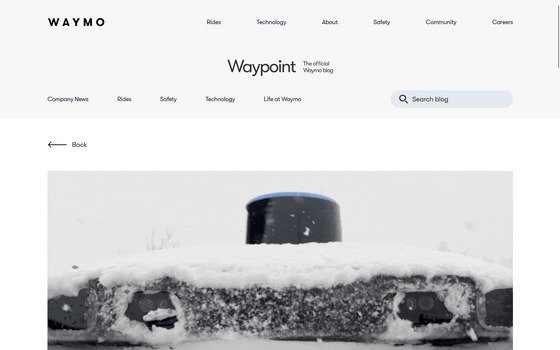How will Waymo's self-driving cars run in bad weather such as blizzards?

Self-driving cars, which use radar and cameras to understand their surroundings, also need to deal with situations where visibility is poor. Waymo, a self-driving car developer, explained how it can recognize its surroundings in bad weather, such as a snowstorm.
Creating an all-weather Driver

Waymo's self-driving cars use cameras, radar, and
The vehicle's sensors are equipped with a heating device and an automatic cleaning system that melts snow while driving.

In addition, to cope with the winter season, when surrounding conditions change dramatically depending on the amount of snowfall and accumulation, the AI situation assessment system has been strengthened in snowy areas, allowing it to handle 'snow-covered roads,' 'slushy roads caused by melting snow,' 'frozen roads,' and more.
The vehicle can also adapt to road closures and detours. When
These systems are built on over 100 million miles of real-world driving data and are said to have evolved in some of the snowiest areas in the United States.

Waymo said, 'We are validating the effectiveness of our general-purpose system through real-world testing, closed-course testing, and large-scale simulations. We are expanding operations in snowy cities like Detroit, Denver, and Washington, D.C., as well as expanding to other regions, to better understand winter weather conditions and validate our capabilities. Winter weather is complex, but we are committed to providing reliable service when our passengers need it most.'
Related Posts:
in Vehicle, Posted by log1p_kr







